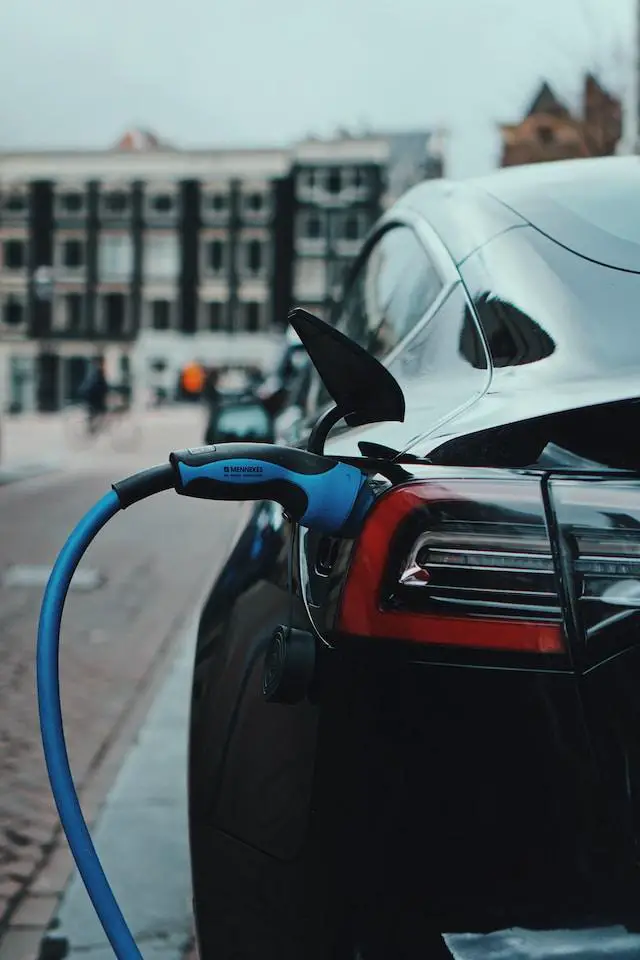Electric Vehicles Are Bringing Out the Worst in Us as they’ve led the charge in the revolution of sustainable mobility in the automotive industry over the past several years. While EVs promise a cleaner future and have various positive environmental effects, certain surprising human habits and attitudes have also been induced by them. We will examine how electric vehicles are bringing out the worst in us in this essay, illuminating the potential and difficulties associated with this game-changing technology.
Contents
The Rise of Electric Vehicles
The Environmental Imperative
The pressing need to cut carbon emissions and battle climate change has largely been the driving force behind the introduction of electric cars. With the planet facing environmental challenges like never before, EVs represent a crucial step toward a cleaner future.
Technological Advancements
Advancements in battery technology and electric drivetrains have made EVs more accessible and practical. The development of faster-charging solutions and extended battery range has contributed to their popularity.
Government Incentives
Many governments worldwide offer incentives to encourage the adoption of electric vehicles. These incentives often come in the form of tax credits, rebates, and other financial perks, making EVs an attractive option for many.
The Battle for Charging Stations
Range Anxiety
Despite technological improvements, range anxiety remains a significant concern for EV owners. The fear of running out of battery power before reaching a charging station can lead to stress and frustration.
Charging Etiquette
The limited number of charging stations has given rise to charging etiquette disputes. Arguments over who arrived first or who has the right to use a particular charging station have become common.
Parking Predicaments
EV owners often find themselves in parking predicaments when charging stations are occupied. This can lead to tense confrontations and even vehicle towing in some cases.
Green Virtue Signaling
The “Eco-Friendly” Competition
The ownership of an electric vehicle has sparked a competition for environmental virtue. Some individuals flaunt their green credentials, leading to an unhealthy sense of superiority.
Greenwashing Concerns
The automotive industry has witnessed instances of greenwashing, where companies exaggerate the eco-friendliness of their products. This has led to skepticism and trust issues among consumers.
The Authenticity Dilemma
Determining the authenticity of an individual’s commitment to sustainability has become challenging. Are people genuinely interested in saving the planet, or are they merely following trends?
Noise Pollution and Silence
The Whispering EVs
Electric vehicles are known for their silent operation, which, while reducing noise pollution, has also led to safety concerns, particularly for pedestrians who rely on auditory cues.
The Nostalgia of Engine Roars
Some argue that the absence of the traditional engine roar in EVs diminishes the emotional connection people have with their vehicles. The nostalgia of the past is gradually fading.
Noise Regulations
To address the safety issue, governments are considering noise regulations for electric vehicles. Striking the right balance between safety and tranquility is a challenge.
The EV Price Tag
Economic Divides
The initial cost of electric vehicles can be prohibitive for many consumers, leading to concerns about economic divides in society. Access to greener transportation should not be limited to the affluent.
Subsidy Controversies
Government subsidies and incentives have faced criticism for favoring certain segments of the population. Ensuring fair access to these benefits remains a significant challenge.
The Cost-Benefit Analysis
Consumers often struggle with the cost-benefit analysis of electric vehicles. While they are eco-friendly, the long-term savings and convenience factors can vary greatly.
The Road to Change
Raising Awareness
Addressing the challenges posed by electric vehicles requires raising awareness about their benefits and limitations. Education is key to promoting responsible ownership.
Educating the Masses
Educating the public about EV technology, charging infrastructure, and environmental impact is essential for fostering a positive and informed attitude towards electric vehicles.
The Importance of Adaptation
As society adapts to the electric vehicle revolution, it is crucial to find solutions to the challenges they present. Collaboration among governments, industries, and individuals is paramount.
Conclusion
In conclusion, electric vehicles have undoubtedly brought about significant changes in the way we think about transportation and the environment. While they offer a path to a greener future, they have also highlighted some of our worst tendencies, from charging disputes to virtue signaling. It is essential to navigate these challenges with a sense of responsibility and cooperation to ensure that the transition to electric vehicles is as smooth as possible.
FAQs
- Is driving an electric car truly better for the environment?
Yes, electric cars are cleaner than conventional gasoline-powered cars since they have no exhaust emissions. - How may range anxiety be handled as a problem?
The key to reducing range anxiety is improving battery technology and expanding the charging infrastructure. - Are all income levels treated fairly in terms of government subsidies for electric vehicles?
Governments should focus on developing incentives that benefit a larger variety of the public in order to close economic inequalities. - Can electric vehicles truly replace internal combustion engine cars?
Even while electric cars have come a long way, they won’t be widely used until infrastructure is improved and technology advances. - What can individuals do to support the electric vehicle transition?
Individuals can educate themselves about EVs, consider their environmental impact, and support policies that promote sustainable transportation options.




